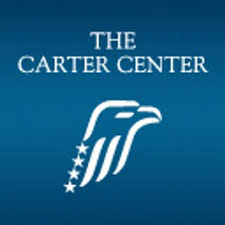By Asma’u Ahmad
A US based Non-Governmental Organisation, The Carter Centre, said no fewer than 500 million people have benefited from its global outreach on Neglected Tropical Diseases (NTDs).
Director Health Programmes of Carter Centre, Dr. Frank Richards, made this known at the commemoration of “Supporting 500 million Treatments Worldwide” at the weekend at Gidan Gimba, Karu Local Government Area,
Nasarawa State.
Dr. Richards also disclosed that the organisation has spent three billion dollars for the treatment of the NTDs in 14 countries across the world, including River blindness in Nigeria.
Chief Executive Officer of the Centre, Ambassador Mary Ann Peters appreciated the choice of Gidan Gimba, a remote rural community, for the event.
She said the treatment was supported by the Carter Centre, but all the treatment were done by the people of the 14 benefiting countries.
She explained that Nigeria was chosen to celebrate the event out of the 14 countries because Nigeria was one the most affected by NTDs.
According to Ambassador Peters, of the 500 million treatments, 60 percent of the treatments were executed in Nigeria.
“The treatments were delivered by thousands of volunteers in some 20,000 Nigerian communities just like Gidan Gimba,” she said.
The chief executive officer attributed the success to the fact that Nigerians are ready to work hard to improve their own health.
She commended government agencies, development partners and the benefiting communities for the respective cooperation for this great achievement.
She said the centre was founded by former President and Mrs Jimmy Carter, both of whom have made several trips to Nigeria and love Nigeria very much.
Director of USAID Mission in Nigeria, Mr. Michael Harvey, said the mission has decade of partnership with the Carter Centre in addressing the challenges of human cause, including the NTDs.
Governor Umaru Tanko Al-Makura of Nasarawa State represented by the state Commissioner for Health, Dr. Daniel Iya, said the state government would sustain the tempo and push for the eradication of NTDs in the state.




